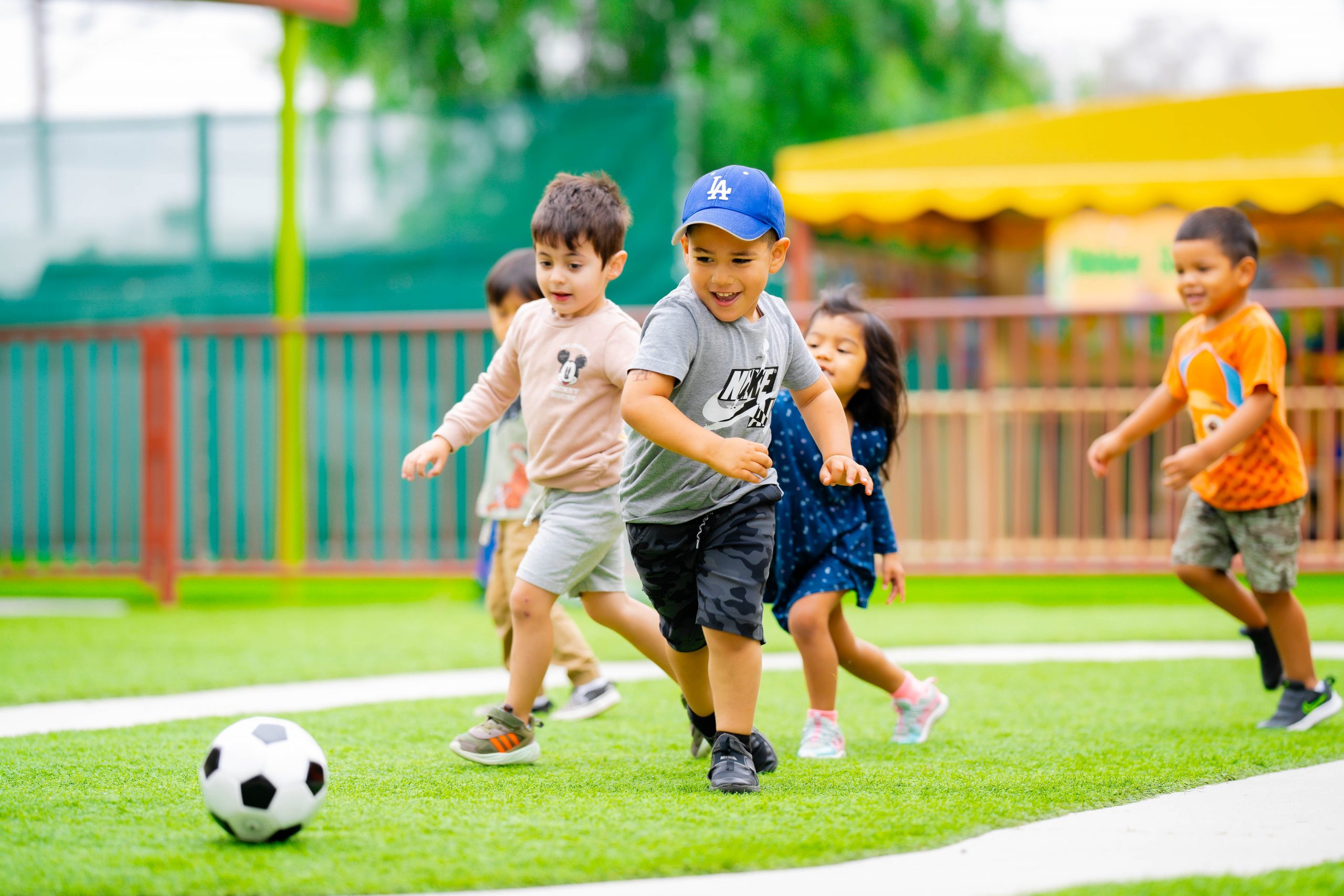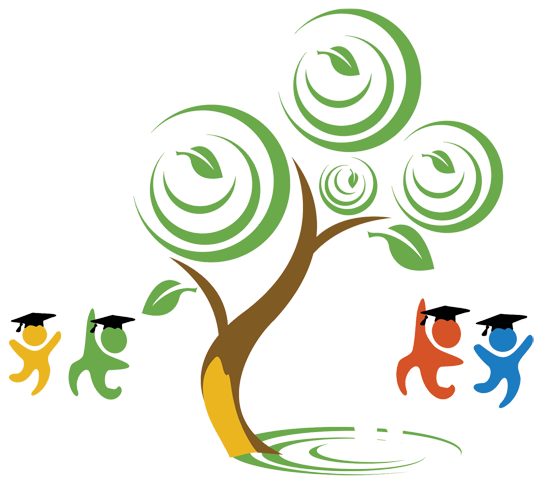
Understanding How Different Early Learning Environments Shape Your Child’s Brain Development When families in
Riverside
, La Sierra, andCorona
begin exploring early childhood education options, they often encounter a fundamental choice: enrolling their child in a traditional public Pre-K program or selecting a Montessori environment. While both approaches aim to prepare children for academic success, recent neuroscience research reveals significant differences in how these educational philosophies impact brain development during the critical early years.Understanding these neurological differences can help parents make informed decisions that align with their child’s developmental needs and learning potential. At Sierra Preschool & After School, we’ve witnessed firsthand how authentic Montessori principles create measurable differences in children’s cognitive development, executive function, and social-emotional growth.
The Neuroscience Behind Early Learning Environments
Brain Plasticity and Environmental Impact
During the preschool years (ages 2-6), children’s brains undergo rapid development, forming neural connections at an unprecedented rate. Research from the National Center for Biotechnology Information demonstrates that enriched environments literally increase brain size and enhance neural connectivity. This neuroplasticity, the brain’s ability to reorganize and form new neural pathways, is most active during early childhood, making the educational environment critically important for optimal development.
Dr. Maria Montessori’s observations about sensitive periods in child development align remarkably with modern neuroscience findings. Contemporary brain imaging studies confirm that children’s brains are primed for specific types of learning during particular developmental windows, validating Montessori’s century-old insights about following the child’s natural developmental timeline.
Executive Function Development
Recent neuroscience research published in Nature Scientific Reports reveals that students from Montessori environments show significantly higher functional integration and neural stability compared to traditional educational settings. This translates to enhanced executive function skills including:
- Working Memory: The ability to hold and manipulate information mentally
- Cognitive Flexibility: Adapting thinking when rules or situations change
- Inhibitory Control: Managing impulses and maintaining focus on tasks
These executive function skills serve as the foundation for all future learning, making early development crucial for long-term academic and life success.
Montessori Environment : Designed for Optimal Brain Development
Multi-Sensory Learning and Neural Pathway Formation
The Montessori environment at Sierra Preschool provides carefully designed materials that engage multiple senses simultaneously. When children manipulate concrete materials, such as golden beads for mathematics or sandpaper letters for language, they activate various brain regions concurrently, creating robust neural networks that support deep learning and retention.
This multi-sensory approach contrasts sharply with traditional worksheet-based learning, which primarily engages visual and fine motor areas while leaving other brain regions underutilized. Research from educational neuroscience shows that multi-sensory learning experiences create stronger, more durable memory traces and enhance conceptual understanding.
Self-Directed Learning and Intrinsic Motivation
The Montessori principle of following the child’s interests aligns perfectly with neuroscience research on intrinsic motivation. When children choose their own activities based on internal interest rather than external rewards, different brain regions activate compared to externally motivated tasks.
Brain imaging studies reveal that intrinsically motivated learning activates the brain’s reward systems more effectively, leading to:
- Enhanced dopamine production that supports memory consolidation
- Increased activity in the prefrontal cortex, supporting executive function development
- Stronger neural connections between learning and positive emotional states
Mixed-Age Environments and Social Brain Development
Sierra Preschool’s mixed-age environments (ages 2.5-6) provide unique opportunities for social brain development. Neuroscience research demonstrates that children’s mirror neuron systems, responsible for empathy, social understanding, and learning through observation, develop more robustly in diverse social environments.
Younger children benefit from observing and imitating older peers, while older children strengthen their own understanding by teaching younger classmates. This natural mentoring activates brain regions associated with leadership, communication, and social cognition in ways that same-age groupings cannot replicate.
Traditional Public Pre-K : Strengths and Neurological Considerations
Structured Learning and Pattern Recognition
Traditional public Pre-K programs typically employ teacher-directed instruction with predetermined curricula and timelines. This approach can effectively develop certain neurological pathways, particularly those associated with:
- Following directions and external structure
- Group participation and collective activities
- Standardized skill acquisition and assessment preparation
Academic Content Delivery
Many public Pre-K programs emphasize early academic skills through direct instruction methods. While this can produce measurable short-term gains in specific skill areas, neuroscience research suggests that premature formal instruction may not align optimally with brain development patterns during the preschool years.
Studies indicate that children’s brains are not developmentally ready for abstract symbol manipulation (reading and writing) until around age 6-7, when the necessary neural pathways have matured sufficiently to support these complex cognitive tasks.
Comparative Neurological Outcomes : What Research Reveals
Cognitive Development Differences
A comprehensive meta-analysis published in the PMC (PubMed Central) database found that children in authentic Montessori programs demonstrated significantly stronger cognitive development compared to traditional early childhood programs. Specifically, Montessori students showed superior performance in:
- Processing Speed: Faster and more efficient information processing
- Working Memory: Enhanced ability to hold and manipulate information
- Cognitive Flexibility: Superior adaptation to changing rules and situations
- Creative Problem-Solving: More innovative approaches to complex challenges
Social-Emotional Brain Development
Research from the University of Virginia’s Curry School of Education found that Montessori students demonstrated significantly stronger social cognition skills compared to peers in traditional programs. Brain imaging studies reveal that the social-emotional learning emphasized in Montessori environments activates and strengthens neural networks associated with:
- Empathy and perspective-taking
- Emotional regulation and self-control
- Cooperative problem-solving
- Conflict resolution and peer mediation
Long-Term Neurological Advantages
Longitudinal studies tracking students from Montessori and traditional programs into elementary and middle school reveal persistent differences in brain function and academic performance. Montessori alumni consistently demonstrate:
- Enhanced creativity and divergent thinking capabilities
- Superior executive function skills throughout adolescence
- Increased intrinsic motivation and self-directed learning abilities
- Better social adjustment and leadership skills
Sierra Preschool’s Montessori Implementation
Authentic Montessori Environment
At Sierra Preschool, our environments faithfully implement Dr. Montessori’s principles while incorporating contemporary understanding of brain development. Our carefully prepared environments include:
- Mixed-age groupings (2.5-6 years) that optimize social brain development
- Three-hour work cycles that allow for deep concentration and neural pathway strengthening
- Hands-on materials designed to support multi-sensory learning and concept development
- Freedom of movement that supports the connection between physical activity and cognitive development
Experienced Montessori Guides
Our certified Montessori educators understand both traditional Montessori principles and contemporary neuroscience research. This dual expertise allows them to:
- Recognize and respond to individual children’s developmental needs
- Present materials at optimal timing for neural readiness
- Support children’s natural learning rhythms and interests
- Foster executive function development through appropriate challenges
Integration with Modern Understanding
While honoring traditional Montessori principles, Sierra Preschool incorporates contemporary research on:
- STEAM Learning: Integrating science, technology, engineering, arts, and mathematics through hands-on exploration
- Dual Language Development: Supporting bilingual brain development through Spanish immersion
- Social-Emotional Learning: Explicitly teaching emotional regulation and social skills
- Outdoor Education: Connecting with nature to support overall brain development and well-being
Making the Right Choice for Your Child’s Brain Development
Individual Developmental Considerations
Every child’s brain develops according to unique timelines and patterns. Some children thrive in the self-directed freedom of Montessori environments, while others may benefit from more structured approaches. Consider your child’s:
- Attention span and concentration abilities
- Independence and self-regulation skills
- Learning style preferences (visual, auditory, kinesthetic)
- Social interaction patterns and preferences
Family Values and Educational Philosophy
The choice between Montessori and traditional approaches should align with your family’s values regarding:
- Intrinsic vs. extrinsic motivation
- Individual vs. group-centered learning
- Child-led vs. teacher-directed education
- Long-term developmental goals vs. short-term academic gains
The Sierra Preschool Advantage : Optimal Brain Development
Evidence-Based Montessori Implementation
Sierra Preschool combines authentic Montessori principles with contemporary neuroscience research to create optimal conditions for brain development. Our approach recognizes that:
- Each child’s brain develops uniquely, requiring individualized approaches
- Multi-sensory experiences create stronger neural pathways than single-modality learning
- Intrinsic motivation supports deeper learning and longer retention
- Mixed-age environments optimize social-emotional brain development
Comprehensive Development Support
Our programs address all aspects of neurological development:
- Cognitive Growth: Through hands-on materials and self-paced learning
- Executive Function: Via freedom within structure and self-regulation practice
- Social-Emotional Development: Through mixed-age interaction and conflict resolution
- Physical Development: Via freedom of movement and outdoor exploration
- Creative Expression: Through arts integration and open-ended materials
Preparing Brains for Future Success
Research consistently demonstrates that children who experience high-quality Montessori education develop neurological advantages that persist throughout their academic careers and into adulthood. These include:
- Enhanced creative problem-solving abilities
- Superior executive function and self-regulation skills
- Increased intrinsic motivation and love of learning
- Better social-emotional adjustment and leadership capabilities
Conclusion : Investing in Optimal Brain Development
The choice between Montessori environments and traditional public Pre-K programs represents more than an educational preference, it’s an investment in your child’s neurological development during the most critical period of brain growth. While both approaches have merits, neuroscience research consistently demonstrates the advantages of environments that honor children’s natural development patterns, provide multi-sensory learning experiences, and foster intrinsic motivation.
At Sierra Preschool & After School, serving families throughout Riverside, La Sierra, and Corona, we’re committed to providing authentic Montessori experiences that optimize brain development during these crucial early years. Our evidence-based approach combines traditional Montessori wisdom with contemporary neuroscience understanding to create environments where every child’s brain can reach its full potential.
Your child’s brain development happens only once. Choose an environment that honors this precious opportunity and sets the foundation for lifelong learning success.
Learn more about Sierra Preschool’s brain-development-focused Montessori programs at sierrapreschool.com
